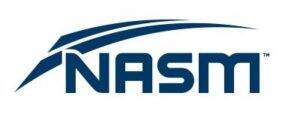Careers in fitness and nutrition have seen huge growth over the past decade. The ongoing interest in health and wellness means that employment opportunities in these professions are expected to increase in the future too.
As science continues to contribute to our knowledge of the role fitness and food play in our overall well-being, it is becoming increasingly important for anyone wanting to build a career in this sector to have the proper certifications.
As well as demonstrating your knowledge and expertise, having a certification from a well-respected body like the National Academy of Sports Medicine (NASM) or the National Strength and Conditioning Association (NSCA) helps to differentiate you from the crowd. Prospective employers and even private clients are increasingly demanding that you be certified before they will consider working with you.
As you plan your health and wellness career path, picking a program that will help you to achieve certification is a vital step.
At Concordia University Chicago, we’ve designed the five concentrations of our online Master of Science in Applied Exercise Science with your future employability in mind. Making sure you are prepared for the related certification exams with NASM or NSCA is a key part of that.
Why choose certification from the NASM or NSCA?
 We work with NASM and the NSCA because they are two of the most well-respected and recognized certification bodies in the health and wellness industry.
We work with NASM and the NSCA because they are two of the most well-respected and recognized certification bodies in the health and wellness industry.
NASM has been certifying personal trainers for over 30 years. The scientific rigor of its programs means they are among the most popular choices for personal trainers, athletic trainers, coaches, and other fitness specialists.

Accredited by the National Commission for Certifying Agencies (NCCA), NASM certification is a requirement for many personal and athletic training jobs.
Like NASM, the NSCA is accredited by NCCA. Founded in 1978, the NSCA is dedicated to an evidence-based approach to strength and conditioning. If you intend to specialize in strength and conditioning, you’ll find that many jobs list NSCA certification as a requirement.
Which certification is right for me?
There is a range of certification programs available from these two bodies. The one that is right for you will depend on your intended specialization.
NSCA Certifications
If you intend to focus on strength and conditioning, you’ll want to aim for certification from the NSCA.
NSCA Certified Strength and Conditioning Specialist (NSCA-CSCS)
The CSCS certification route is aimed at strength and conditioning specialists who work with athletes to improve their performance. To pass the exam, you’ll need to demonstrate a thorough understanding of exercise science, sport psychology, and nutrition.
You must also demonstrate your ability to design appropriate training programs, teach proper exercise techniques, and select and evaluate tests. Your understanding of policies, procedures, and creating a safe training environment will be assessed too.
How can I prepare for certification with the NSCA?
Concordia-Chicago’s Strength and Conditioning concentration prepares you to sit the NSCA-CSCS exam.
All students on our online Exercise Science Master’s degree take core modules in kinesiology, physiology, and sports nutrition. Students on the Strength and Conditioning concentration also cover all the essentials of strength and conditioning as established by the NSCA.
In addition to covering the essentials, those on the strength and conditioning concentration will also cover advanced theories, a seminar, and a practicum, where students can develop and implement a strength and conditioning program through a case study with a member of the community.
NASM Certifications
For most other personal trainers and fitness specialists, the NASM certification route will be the best option. In addition to its core personal trainer certification (NASM-CPT), NASM offers certifications depending on your chosen specialization.
NASM Performance Enhancement Specialist (NASM-PES)
 If you are a coach or intend to train athletes, regardless of their level, the NASM-PES certification demonstrates your knowledge and commitment to an evidence-based approach to enhancing the performance of your athletes and clients.
If you are a coach or intend to train athletes, regardless of their level, the NASM-PES certification demonstrates your knowledge and commitment to an evidence-based approach to enhancing the performance of your athletes and clients.
This certification is fast becoming a requirement to work with professional athletes and sports teams, so having it will open a range of doors for your career progression.
The exam assesses your understanding of physiology and anatomy, sports performance and training, injury prevention, sports nutrition, and psychology. Our Sports Performance Training concentration is specifically aimed at helping you prepare for the NASM-PES exam.
Our core modules cover physiology, kinesiology, and nutrition to give you a comprehensive understanding of these key topics.
Students studying for the Sports Performance Training concentration also take classes in sports performance principles and training design. Additionally, those students participate in special topics seminars, program design, and a practicum program. Graduates will finish their degree with a capstone project which can be independent, publishable research, professional field experience, a conference presentation, or another project that reflects their knowledge gained from the program.
NASM Corrective Exercise Specialist (NASM-CES)
 If you see your future career focusing on injury prevention or would like the ability to help your athletes or clients improve the efficiency of their workouts and their day-to-day movement, the NASM-CES certification will be the perfect fit for you. It demonstrates you can assess clients for motion imbalance and design training programs to help them address it.
If you see your future career focusing on injury prevention or would like the ability to help your athletes or clients improve the efficiency of their workouts and their day-to-day movement, the NASM-CES certification will be the perfect fit for you. It demonstrates you can assess clients for motion imbalance and design training programs to help them address it.
Injury prevention is an increasing area of concern for professional athletes and sports teams, as well as fitness enthusiasts. The NASM-CES certification shows that you have these in-demand skills and will help you progress in your coaching or training career.
As well as understanding the principles of corrective exercise, you’ll need to demonstrate your ability to assess clients, your understanding of the relevant exercise techniques, and showcase how to design a corrective program to address a variety of issues.
Everything you need to prepare for the NASM-CES exam is covered in our Human Movement Science concentration. Students in this concentration take the learning from our core modules in kinesiology to a more advanced level, with classes covering the principles of human movement science, program design for corrective exercise training, and practical experience through a case study with a member of their community.
Final thoughts

No matter your intended specialization, having a recognized certification from an accredited body is vital to your future career success. We work with some of the best-regarded certification organizations in the country, and our different concentrations have been developed to thoroughly prepare you for the relevant exam.
By choosing to study for one of these certifications, you make a solid investment in your future career prospects, demonstrate that your skills and knowledge are grounded in scientific evidence, and make yourself stand out from the competition.
Curious about which health certification is right for you? Check out our helpful infographic here.
About Concordia University Chicago
Concordia University Chicago has been educating students for over 150 years. When you enroll in our online programs you earn the same campus quality degree. Ready to advance your career in health and fitness with a degree in exercise science? Contact one of our Admissions Advisors to learn more or contact us.
Sources
In addition to in-text links, the following sites were consulted:
[/[/[/Request Program Information
Related Articles
Graduate Certificate vs. Masters: What’s Best For Me?
In the journey of professional growth, the decision to pursue [...]
20 Strength and Conditioning Careers That Are Growing
The strength and conditioning field is experiencing significant growth [...]
5 Exercise Physiology Jobs That Are Flying Under The Radar
In today’s world, exercise physiologists are in high demand. According [...]

